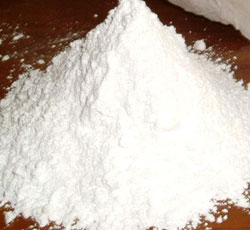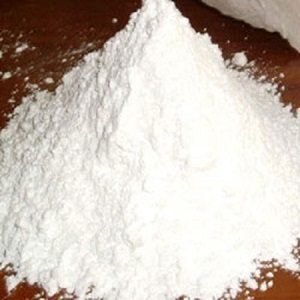The Benefits of Talc Powder by Allied Minerals
Understanding the Nature of Talc and its Uses
Allied Minerals is one of the leading Talc Powder Exporter in India. Talc has been known since ancient times, and is one of the most abundant minerals on Earth. It is primarily composed of hydrated magnesium silicate (H2Mg3(SiO3)4) which has the chemical formula Mg3Si4O10(OH)2. It occurs naturally in a wide variety of shapes and forms, and its color can vary from white to green to soapy grey. Talc has a soapy, earthy feel and can be scratched with a nail, with harder powdered varieties exhibiting a slightly metallic luster.
Talc is generally believed to have been formed by the alteration of sedimentary or igneous rocks in marine environments. Over millions of years, natural elements, such as oxygen and water, have combined with existing minerals and created talc. Additionally, talc can also be formed from the alteration of serpentines, amphiboles, and carbonates, as well as the destruction of preexisting minerals. It is an important part of many metamorphic and hydrothermal rocks, and can be found in a large variety of geologic environments such as earthquakes, volcanic eruptions, and glacial deposits.
B. Industrial Uses of Talc
The most common uses of talc are in paper, paint, rubber, plastic, ceramic, and cosmetics. It is used to increase the smoothness and reduce deformation in paper and paint, and it is popular in the cosmetic industry as an ingredient in makeup, face powders, body powder, and talcum powder. Talc is known to fill and bind various materials, and due to its high resistance to temperature and chemical attack, it is an excellent reinforcing agent in rubber. It can also be used as a heat insulator, due to its low thermal conductivity, and is an important raw material in the ceramics manufacturing process.
C. Refractory Uses of Talc
Talc can also be used as a refractory material, primarily in the production of cements and mortar, as well as in a variety of other high temperature applications. Its high resistance to extreme temperatures make it ideal as an aggregate; talc absorbs heat quickly, and with added binders, can be formed into dense and durable matrices. These matrices are then used to create cement castables, refractory mortars, and insulation products amongst many other applications.
The Talc Powder Exporter in India
Allied Minerals is one of the leading Talc Powder Exporter in India, and is growing in its reputation for producing the finest quality talc products. With an extensive network of partner factories spread across the country, Allied Minerals is recognized as a reliable and resourceful supplier for many of India's top industries.
Strategies for Successful Refractory Application
In order to make the most of talc’s refractory properties, one must maintain safety protocols and utilize the right methodology during production.
A. Choosing the Right Talc for Your Application
The first step should always be to determine the needs of the product. The administrator must evaluate the project and determine the suitability of various products. Factors such as Packing density, whiteness, and composition should always be taken into consideration before selecting a suitable talc product. Allied Minerals is willing to offer custom solutions to customers that require talc with special attributes.
B. Handling and Storage of Talc
Once the product has been selected, it is important to ensure that it is properly stored and handled. This is generally done by minimizing the exposure to any potential contaminates, minimizing the exposure to external temperatures, and making sure the storage facilities are free from any pests. Additionally, the talc should be sealed in airtight and waterproof bags or containers to prevent exposure to humidity and reduce the chances of any unwanted reactions.
C. Designing and Manufacturing of Refractory Cement castables
Allied minerals Talc can be used as an ingredient in the production of various refractory cements and mortars. Before mixing the ingredients, the administrator must determine the optimum quantity of talc to be used and the right manufacturing conditions to provide superior performance and longevity of the product. Different additives such as binder and admixtures can be used to further strengthen the cement castables. Additionally, special care must be taken to select the right set of tools and machinery that are suitable for the specific application.



Comments
Post a Comment